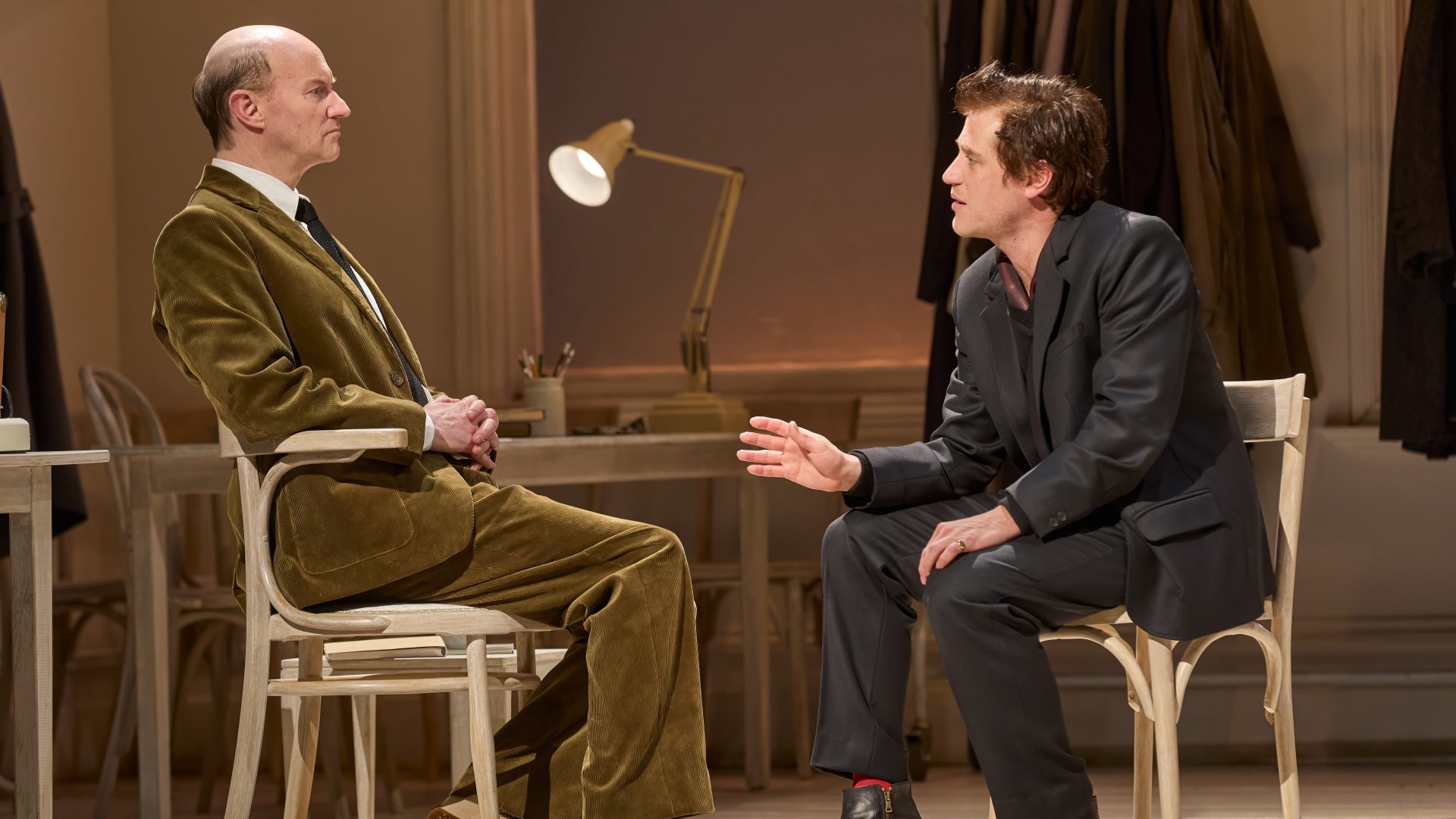The Motive and the Cue
National Theatre, London until July 15
Individuals who make their names in television comedies tend to face prejudice when they attempt to transition as serious stage actors. Many come a cropper. David Walliams comes to mind in this regard. Mark Gatiss may be best known for The League of Gentlemen, but it so happens he has quite a few theatre credits to his name, including Three Days in the Country, which won him an Olivier Award. Even so, it still seemed to me more than a little presumptuous of him to set out to play Sir John Gielgud, one of the greatest actors of recent times, in Jack Thorne’s new play The Motive and the Cue.
All of my prejudices have, however, been pleasantly confounded: Gatiss captures Gielgud magnificently. He has all of his mannerisms – the occasional slight quizzical tilt of the head, the arched eyebrow and the gently lilting voice down to a tee, but what makes the performance exceptional is that he has captured, too, the actor’s vulnerability.
The play looks at how Richard Burton, the classical actor-turned-film star, decided he needed to show once more what he could do on the stage, and, in 1964, got John Gielgud to direct him in a production of Hamlet. It turned out to be a fraught, sometimes bloody, but ultimately rewarding association between two contrasting characters who represented, on the one hand, theatrical tradition, good manners and a slightly prissy reserve, and, on the other, compromised, rumbustious and debauched stardom.
Johnny Flynn inevitably has more trouble convincing as Burton, but then again that man’s charisma was never going to be easily replicated. Tuppence Middleton struggles for the same reason as Burton’s then wife Elizabeth Taylor, but she nevertheless has some poignant scenes with Gielgud where they achieve an easy rapport. There’s an amusingly scene-stealing turn along the way from Allan Corduner as Hume Cronyn, the actor who was once married to Jessica Tandy.
Ultimately it is Thorne’s writing and Sam Mendes’s brisk direction that holds this big, unwieldy and hugely ambitious two hours and 40 minutes production together. I found it oddly moving at the end, but then I reflected I was maybe just sad that my parents’ generation got to see the real Gielgud, Burton and Taylor strutting their stuff, whereas mine only gets to see actors playing them.










